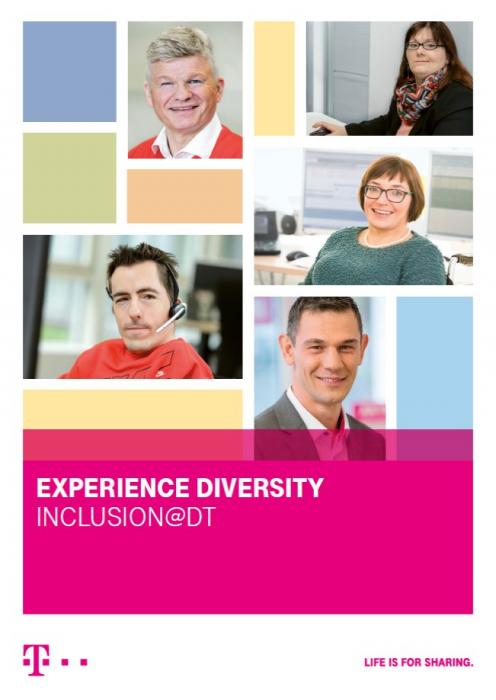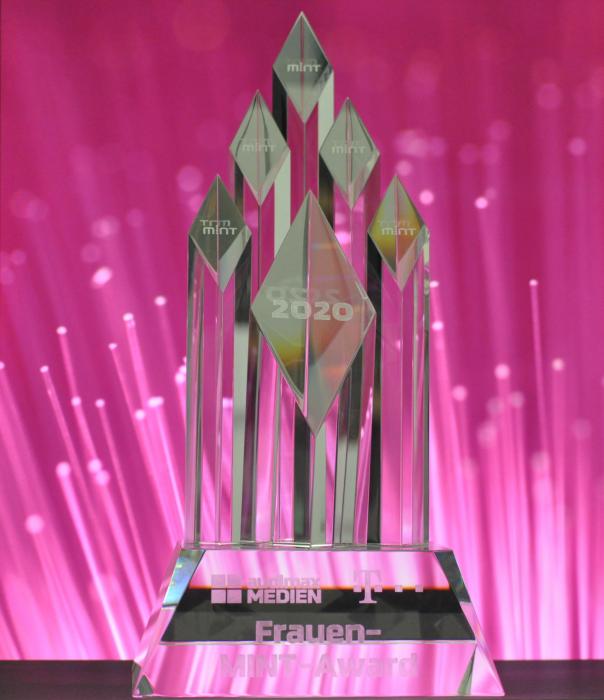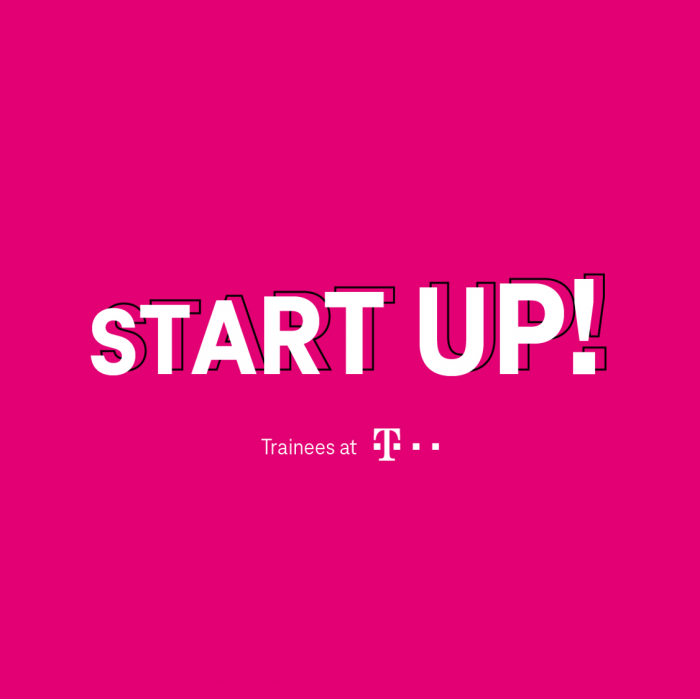Social
Training & Development
The development of future-proof skills for our employees and the strengthening of an increasingly digital learning culture are top priorities for us. In the reporting year, employees in Germany and the European subsidiaries invested an average of 4.6 working days per employee in their continuing education. In 2023, we advanced our "welearn" (formerly known as “youlearn”) learning culture initiative, which had been established since 2019, aligning it more closely with the Group's strategic objectives. With the theme "Time to Focus on Tech & Digital Skills," welearn specifically targeted the acquisition of technical and digital proficiencies, yielding significant results: 52% of the 3.8 million learning hours invested by employees in Germany and European national companies were dedicated to technical and digital skill development.
Deutsche Telekom has solidified its digital learning framework, boasting a robust digital learning utilization rate of approximately 73%. Leveraging the intelligent "Percipio" learning platform, often likened to the "Netflix of learning," and integrating providers like "Coursera" with content from esteemed universities, over 164,000 employees access a diverse array of digital and contemporary learning resources.
Additionally, the employee-driven "Learning from Experts" (LEX) initiative, launched in 2018, has emerged as the company's largest peer-to-peer learning community, fostering informal learning channels. In 2023, more than 5,650 online sessions were conducted, facilitating the exchange of expertise among colleagues.
| Learning: Costs/FTE | 2018 | 2019 | 2020 | 2021 | 2022 | 2023 |
| Group (total) | € 644 | € 651 | € 582 | € 539 | € 534 | € 572 |
The 80/20 model
Since 2017, we have been using the 80/20 model to give our employees the opportunity to spend up to 20 percent of their working time on projects outside of their usual remit. This allows them to work with teams from other departments. In this way, we break up departmental silos and can make better use of the company’s broad spectrum of talent. The model makes employees more visible and motivated, and enhances their network of contacts. Use of the model is voluntary and is tied to a specific Group project.
Actionplan to promote inclusion
Inclusion thrives on partnership. Barriers in the work environment and in people´s minds can only be removed together. Following this thought, Telekom has updated its Actionplan of 2016. The new Actionplan 2.0 is aligned with the challenges of our current time. It helps to fill the framework of the new Group Inclusion Agreement with participation of all employees.
Percentage of open positions filled by internal candidates
Future Skills
According to a study by the Korn Ferry Institute, 4.3 million technical positions in the technology, media and telecommunications industry will remain unfilled worldwide in 2030. However, the implementation of our Group strategy requires highly trained employees,
many with technical, digital and IT skills. In times of skills shortages, we are therefore not only competing with companies in our industry, but especially with companies from the tech and software sector as well as the automotive industry, which have a strong demand for technical and digital skills. In response, we are investing more in recruiting, developing and retaining talent with these skills. The results of these efforts are proving successful:
We were able to increase the share of digital experts in our Group to 19.7% in 2022. This means that the originally planned value of 17 % by 2024 has been significantly exceeded
As a basis for the necessary skills transformation, we have created instruments such as the Global Job Architecture (GJA), strategic personnel planning and strategic skills management.
In terms of future skills, the skill management system makes existing and missing skills visible at the individual level with the support of a digital tool,
development plans can be continuously adapted by means of targeted, individual qualification measures. One focus is on the topics of artificial intelligence, cloud computing, data science and analytics as well as software development and cyber security. To this end, the skills management process was successfully carried out for over 31,000 employees in the Group in 2022, which is around 22% of the workforce. A significant increase in this number is planned for 2023 and 2024.
Fair Pay - Equal remuneration
We offer our employees competitive, performance-based pay oriented to the relevant local markets. Our remuneration policies are structured to guarantee equal pay for men and women and do not discriminate.
Executive compensation at Deutsche Telekom is based on our Group-wide Global Compensation Guideline. We also offer our employees additional benefits such as our company pension scheme.
As part of our Group-wide employee survey, we regularly ascertain how satisfied our employees are with their pay and also conduct other surveys on specific topics and in specific units.
| Employee Level |
Average Women Salary |
Average Men Salary |
| Executive level (base salary only) | 1,080,000 | 1,065,000 |
| Executive level (base level + other cash incentives) | 2,047,000 | 2,281,000 |
| Management level (base salary only) | 103,200 | 106,200 |
| Management level (base salary + other cash incentives) | 131,300 | 137,000 |
| Non-management level | 61,300 | 64,600 |
Detailed information:
- Note for value "Executive Level" (Board Remuneration) Public Source: DT Remuneration Report 2022 => page 21
- Further employee levels
- Calculation is only for Germany
- Management level: MG 2 and MG 3 and high exempt levels AT3 and AT4
- Non-Management level: Tarif employee's Group 1-10
Bologna@Telekom
Description of the program
Bologna@Telekom is the part time study program of Deutsche Telekom and offers to employees in parallel to their regular work a scholarship of 50% of tuition fees for selected Bachelor and Master-degree-courses. Bologna@Telekom is running for more than 10 years and over 2000 about employees have started in business-related part-time courses. Some facts underline the meaning of the program for the emplyees. With a graduation rate of 70% the program is very successful.
Participants can be of any age. 20% of participants started Bologna@Telekom after 9+ years working at Deutsche Telekom. –The program overall is an important example on group level and delivers an impact in refer to diversity, career development, business related content, lifelong learning and employee retention. 31 % of the graduates are female, 15% of the graduates are managers and 59% of the Bologna@Telekom graduates changed job family. That means the alumni tend to move to the job family that fit their field of study. More and more Bologna@Telekom students are interested in subjects with digital focused content. The share of STEM students in Bologna@Telekom is increasing. The study time of 3.7 years in average shows the high motivation of the Bologna@Telekom students.
Benefits of the program:
All selected academic courses are following the business and skill demand of Deutsche Telekom (e.g. Software Development, Business informatics, Digital Transformation, Sales). On the other hand, the programs ensure a huge impact on the personal development of each student in fostering self- organization, digital collaboration, teamwork and work-life- and learn balance. So, the company benefits from graduates with future oriented knowledge, strong self-management and learning competencies and a high retention rate.
Quantitave impact of business benefits:
As major results we can point out, that since start of Bologna@Telekom:
- 59 % of the graduates changed their job role so Bologna@Telekom is an excellent example for upskilling (in a current position) and reskilling (on a new position)
- 2,7 % of FTEs participating in the program
- Evaluations have shown, that graduates valued the development of personal experience very high
- The program contributes to our employer attractiveness and employee retention as only 9% of the participants left the company.
- With a product consumer index of 8.92 customer satisfaction in 2023 was excellent.
DT AG Health, Safety and Environment Management System and for Quality Management System
As a large corporation, Telekom assumes responsibility for environmental protection. Uniform environmental standards ensure that resource-saving behavior is anchored in all processes and in the daily behavior of employees. To this end, the Group has implemented an HSE (Health, Safety and Environment) management system in all fully consolidated companies.
There are internationally recognized standards for environmental protection in companies, such as the ISO standards (standards of the International Organization for Standardization, ISO for short). These form the basis for environmental management at Telekom. This ensures that environmental policy is implemented uniformly throughout the Group.
Telekom in Germany has been working in accordance with the international standard ISO 14001 for environmental management systems since 1998. Compliance with the ISO standard enables, among other things, resources to be used more efficiently, energy to be saved and waste to be avoided. Employees help to further increase environmental friendliness with their own suggestions.
Telekom's commitment goes far beyond the issue of climate protection: Since 2010, a uniform Group-wide HSE management system has been in place. HSE stands for the three main topics of health, safety and environment. The international standards for occupational health and safety, environmental management and quality management serve as the basis for this.
Employees and experts from all Deutsche Telekom national companies regularly exchange information and jointly develop a comprehensive management system. Internal and external audits are conducted regularly to verify that the requirements of the HSE management system are consistently implemented in the company's day-to-day operations.
Here you can find the manual for our central Health, Safety and Environment Management System (HSE MS) of Deutsche Telekom Group. This means that it covers 100% of all Deutsche Telekom units.
Increasing contact and process quality
We want to offer every customer the best service experience! To achieve this goal millions of customer feedbacks are collected and evaluated each year by quality management. Customer satisfaction and solving the customer's problem in the first contact are our top priorities.
Our surveys are carried out either directly after a contact (for example in the hotline, in a store, during a field service call or after online inquiry by mail or chat) or after a completed process (for example, after a deployment).
If the customer tells us in a survey that his or her concern has not yet been solved, a callback offer is made to the customer in order to clarify his or her concern. The results of the customer surveys are also used to continually increase the competence of our consultants.
Regular test wins in comparative tests conducted by leading trade journals are proof of the excellent quality of our customer service.
Our goal is to constantly improve customer satisfaction (KPI`s):
“Child and Career” mentoring program
After three very successful runs, the kick-off event of our next “Child and Career” mentoring program took place in October 2019. For a period of 21 months, this program provides for potential junior staff in expert and managerial functions from various business units of the Group in Germany to be mentored by an experienced manager. The mentees who will soon start parental leave, are in parental leave or are planning their re-entrance in the job gain new professional and methodical competences “in the tandem” and benefit from shared experiences with others in the program network. In the fourth “Child and Career” session, 26 tandem teams went to the start. The program is supplemented by web-based tutorials on focus topics and self-organized network meetings. In addition, supplementary coaching services such as parental coaching and professional support coaching will be provided, as required. This was very well appreciated by the last run. More than 80 percent of participating junior employees and almost 70 percent of the managers are female.
The next mentoring program will start in the 2nd half of 2022.
Start up!: Our trainee program for young technology enthusiasts and new thinkers
Our Start up! Trainee Program primarily targets graduates with an interest in Technology and IT who are willing to leverage their talent as innovator, technophile or revolutionary every single day. With the aim to reach talented candidates outside of Germany, the application process has been held in English since 2017. As a result, we have been able to maintain the share of international participants in 2022: 27 percent of trainees come from different countries around the globe. In the reporting period, a total of 38 BA/MA graduates embarked on the trainee program, 53 percent of whom were women.
During a period lasting around 18 months, trainees familiarize themselves with different areas of the company in Germany and abroad. They take on challenging project assignments in various business areas. The trainees are supported by experienced managers. The program is supplemented by innovative learning elements and events. In addition, our Start up! Trainees also pursue their own initiatives including social & sustainability projects within the context of the Magenta Friday (project day).
Partner for BAGSO
We work with BAGSO (the German National Association of Senior Citizens’ Organizations) to promote media literacy among seniors. As a partner, we sponsor the Goldener Internetpreis (Golden Internet Award). The award recognizes people over the age of 60 who use the internet skillfully and help others to get started in the online world. The next award ceremony is planned for November 2019.
In 2018, we once again took part in Deutscher Seniorentag (Germany’s Day for Seniors), showcasing products and services aimed at people aged 65 years and over. These included mobile telecommunications, fixed-line and MagentaEINS offerings, apps for seniors, and security products by Magenta SmartHome. Visitors to our booth had the chance to use a variety of services. For example, we had two technicians available to set up mobile devices and answer technical questions. As an advisory board member, we are also involved in Digital-Kompass (Digital Compass), a joint project by BAGSO and DsiN. Digital-Kompass uses materials and regular meetings on digital issues to support internet guides who help seniors get online and explore the internet. A total of 75 Digital-Kompass locations are also being set up across Germany.
Partner for “Deutschland sicher im Netz”
The Deutschland sicher im Netz e.V. (DsiN – Making Germany Safe on the Net) association has served as a central point of contact for consumers and small businesses interested in the topics of IT security and data privacy for twelve years now. As a member of the association, we are committed to working with other companies and organizations on projects such as the “IT-Sicherheit@Mittelstand” (IT security for SMEs) series of workshops, the “Digitale Sicherheit” (Digital Safety) campaign network, and “Digital-Kompass” (Digital Compass). We are also contributing to the “Sicherheitsbarometer” app (Safety Barometer – SiBa app) for digital self-protection.
Furthermore, we are supporting the project “Digitale Nachbarschaft” (DsiN, Digital Neighborhood). This trains people as volunteer IT ambassadors who will pass on their knowledge and expertise to neighbors and colleagues.
As a member of the “Security, protection, and trust for society and business” platform, which is part of Germany’s national Digital Summit, we worked with the DsiN to develop a new educational tool for artificial intelligence. KInsights! is an interactive showroom that offers an insight into the latest AI technologies. The tool was unveiled to the public by Prof. Günter Krings, Parliamentary State Secretary at the Federal Ministry of the Interior, Building, and Community, at the Digital Summit on December 4, 2018.
Talent acquistion
For the third year in a row, the Corona crisis has had a massive impact on the world of work. In addition, society faces other challenges: the outbreak of the Ukraine war in February 2022 has made the world more uncertain, and the energy crisis, supply shortages and inflation are felt by everyone in their daily lives. These changes affect all areas of life and move people to want to make the world a better place. Candidates not only want a secure job, but also a sense of purpose in their work, self-fulfillment, continuous development and a contribution to society and the environment.
That is why we have redefined our employer brand in order to attract talented people to Telekom in the face of the known shortage of skilled workers and to convince them to follow their future path with us. For us, there is no specific destination at the end of the journey, but it is a journey that enables talents to realize their ambitions and grow together with us. With a global network of experts, our employees are part of the ever-evolving digital transformation, driving sustainable change and their skills. We call it Growthtopia. The times we live in demand that we express our shared values and that we stand together in the struggle for fairness and equal treatment. With target group-specific messages, authentic communication and the hashtag #QuestionTodayCreateTomorrow, we show what change means to us and what opportunities talents can discover at Deutsche Telekom.
Promotion of women in STEM professions#
Diversity is an integral part of our corporate culture, this is why we are increasingly trying to attract talented women to our company with target-group-specific speeches. As part of our partnership with Femtec, a cooperation of large well-known companies, the Fraunhofer Institute and major German technical universities (TU) as well as the ETH Zurich, which have set themselves the goal of finding and promoting young female STEM talents, we are hosting the Innovation Lab this year. The project topic is to develop a technically innovative solution for green, sustainable mobile sites - which almost 20 international female Femtec women have chosen.
With the Femtec Alumnae network, a 6-week training programme took place in the areas of artificial intelligence, leadership and agile working. 60 female IT experts or managers with 2-6 years of professional experience participated in the virtual expert sessions. We are also involved with Global Digital Women, an international network of female shapers in the digital industry.
"Start up!": Our trainee program for young technology enthusiasts and new thinkers
Our Start up! trainee program above all targets graduates with an interest in Technology and IT who are motivated to shape the world of tomorrow with an entrepreneurial spirit and open to new challenges. With the aim to reach talented candidates outside of Germany, the application process has been held in English since 2017. As a result, we have been able to increase the share of international participants in 2021: 41 percent of trainees come from different countries around the globe. In the reporting period, a total of 39 BA/MA graduates embarked on the trainee program, 49 percent of whom were women.
During a period lasting around 18 months, trainees familiarize themselves with different areas of the company in Germany and abroad. They take on challenging project assignments in various business areas. The trainees are supported by experienced managers. The program is supplemented by innovative training formats and events. In addition, our Start up! trainees also pursue their own initiatives including social and sustainability projects within the context of the Magenta Friday (project day).





